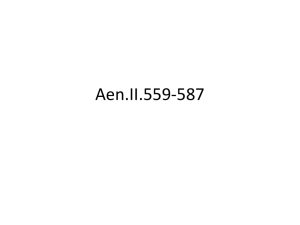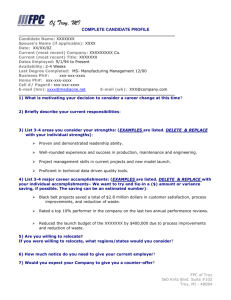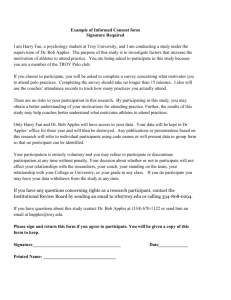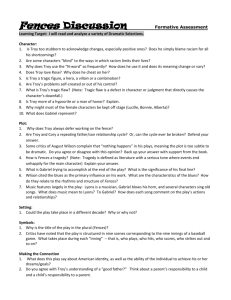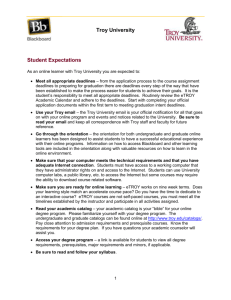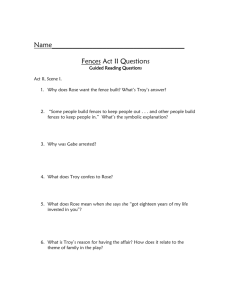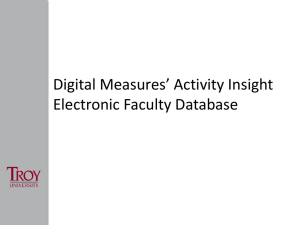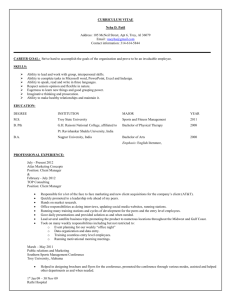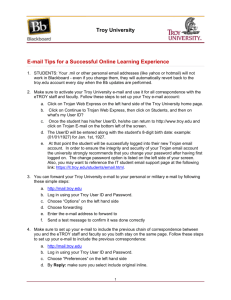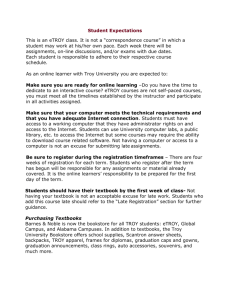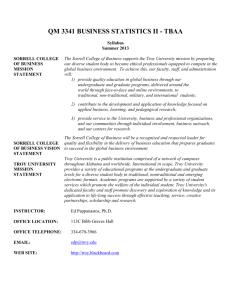Sentence Types - Troy University
advertisement
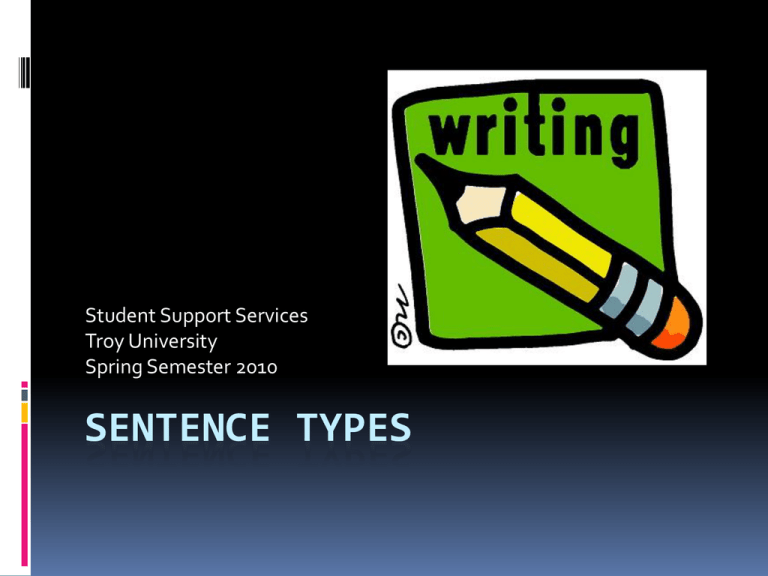
Student Support Services Troy University Spring Semester 2010 SENTENCE TYPES Objective To help students learn various sentence types and patterns To helps students construct and revise sentences Targeted Group: College Students/Participants/Writers First, What is a “sentence”? Expression of a complete thought An independent clause (Noun + verb or verb phrase) Example: Jessica writes. Subject + predicate What is the subject of a sentence? “The subject of a sentence is the person, place, thing, or idea that is doing or being something.” (grammar.ccc.comment) Examples: Joe spoke briefly and then sat down. The two-passenger airplane crashed into a tree. Love is the most difficult word to define. What is the Predicate of a sentence? The Predicate: “The predicate is the part of the sentence that contains a verb or verb phrase(s) and its complements.” (grammar.ccc.comment) Examples: Joe spoke briefly and then sat down. The two-passenger airplane crashed into a tree. Love is the most difficult word to define. Four Sentence Types There are four kinds of sentences: -- Assertive or declarative sentence (a direct statement) Example: The book fell to the floor. -- Imperative sentence (a command). Example: Turn right at the corner and then drive two miles. -- Interrogative sentence (a question) Example: Are you afraid of the dark? -- Exclamatory sentence (an exclamation) Example: Stop trying to break my arm! Example: Wow, I won a million dollars! Sentence patterns Pattern 1: Simple Sentence One independent clause (S+V) Example: John coughed. Pattern 2: Compound Sentence Two or more independent clauses joined by a conjunction. Example: John coughed loudly and Nancy sneezed repeatedly. Sentence patterns Pattern 3: Complex Sentence This pattern includes a dependent Clause that follows or precedes the independent clause. Example: Because he has seasonal allergies, John coughs, sneezes, and blows his nose repeatedly. Regardless of the type of sentence or sentence pattern you write. . . You must be able to identify certain logic and grammar errors in sentences and learn to correct such errors. Please identify and correct the sentence problems in the sentences on the handout that accompanies this presentation. (Optional) In Conclusion . . . Please complete an academic seminar evaluation form and submit it to SSS staff. Please suggest workshop ideas on your seminar evaluation form. Thank you for your participation and . . . Enjoy your learning opportunity here at Troy University. Have a great day! THE END. THANK YOU . . . for your Attention and Participation. Contact Information Troy University Troy, Alabama 36082 Student Support Services 109 Shackelford Hall Annex; Troy University; Troy, AL 36082 Phone: 334-670-5985 Coordinator: Buffie M. Edwards Rebecca C. Money, English/Reading Specialist 109 Shackelford Hall Annex; Troy University; Troy, AL 36082 Phone: 334-670-5985; rmoney@troy.edu / PPT Developed 2007/04-02

